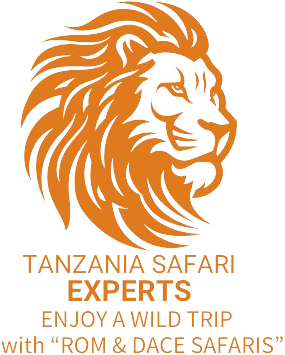Malaria, yellow fever and other important health issues
About Malaria
Malaria is present in Tanzania, and it is a serious issue. The good news is that there are several types of malaria, and only one of them—the rarest one—poses a deadly risk. Sometimes, travel agents may say that although malaria exists in Tanzania, it is not present in the specific region you plan to visit. Don't believe them.
Consult your doctor to determine the best course of action.
How It Works in Practice
In practice, there are two main approaches to dealing with malaria. One approach is to take malaria tablets as a preventive measure. This means starting to take the tablets before you travel to a malaria-affected region, continuing to take them throughout your trip, and even for some time after you return home. There are two types of tablets: those that you take once a day and those that you take once a week. The other approach is to buy antimalarial tablets, keep them handy, and take a large dose at the first signs of malaria symptoms. The medication instructions will provide the dosages for both prevention and treatment.
Malaria is diagnosed through laboratory tests. There are many laboratories throughout the country. However, if you're on a safari in a remote area, you may need to drive for six hours or more to reach a laboratory. This can be complicated, especially if you're traveling with a group.
What Locals Do for Prevention: Seven Tips
In Tanzania, there are various products and lifestyle habits to prevent malaria. First, sleep under a mosquito net at night. It's believed that not all mosquitoes spread malaria, but only a specific type, and they are active only for a few hours at night. However, there's no guarantee that a malaria-carrying mosquito won't bite outside these hours. Second, sleep with a fan or air conditioner on at night, as mosquitoes dislike the airflow. Third, for comfort and malaria prevention, use mosquito repellent cream, which is like body lotion. These creams are available in many small shops in Tanzania and cost about 1-2 euros. Fourth, special anti-mosquito incense sticks can be bought in stores. If you're sitting outside in the evening, you can light a stick and place it in the ground or in a bar of soap. The smoke will keep mosquitoes away. Fifth, stores sell plug-in devices with essential oils that kill mosquitoes and flies. These devices cost around 3-4 euros. Sixth, a strong insect spray (dichlorvos) can be bought in stores. Spray it in your room before bedtime, and avoid entering the room for half an hour afterward. The smell will linger for a while. Seventh, you can rely on geckos (small lizards) for an eco-friendly solution. They crawl on walls and ceilings and eat mosquitoes. However, if you've used dichlorvos in the room, geckos will stay away.
Whether to take malaria tablets for prevention or rely on other preventive measures is something you should discuss with your doctor. The most dangerous aspect of malaria is the high fever, which can be difficult for some people to handle. Malaria can also interact with other chronic illnesses. It's also worth noting that some insurance companies won't cover malaria treatment costs if you didn't use malaria tablets for prevention.
About Yellow Fever
The World Health Organization considers Tanzania a country with a low risk of yellow fever. Therefore, if you are traveling from a country that is free from yellow fever, vaccination is not required for travel to Tanzania.
However, you should be aware of Tanzania's entry requirements.
Yellow fever vaccination is not required for:
- Travelers coming from countries that have no yellow fever risk and who haven't transited through high-risk countries, staying there for 12 hours or more.
Yellow fever vaccination is required if:
- You enter Tanzania from a country with a high risk of yellow fever.
- While traveling to Tanzania, you transited through a high-risk yellow fever country and stayed there for 12 hours or more.
Other Health Risks
There are no mandatory vaccines required for travel to Tanzania. Recommendations for travelers to Africa are similar to those for travelers to Asia and South America, such as getting vaccinated against Hepatitis A and B etc.
We recommend consulting your doctor for advice on safe and healthy travel.
As an additional resource, we suggest visiting the U.S. Centers for Disease Control and Prevention (CDC) website, specifically the section on Tanzania, including Zanzibar.
Important Tips
When it comes to food, it's important to follow two rules:
- Drink bottled water.
- Eat food that has been thoroughly cooked and is served hot.
The content on this page is based on personal experience and information from the internet. It should not be considered medical advice.
